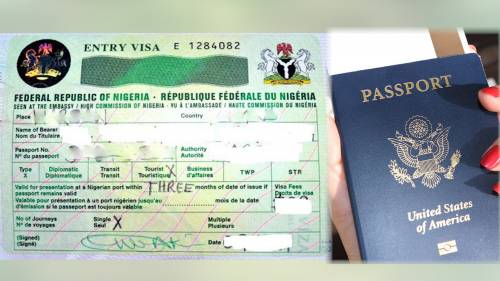Nigerians seeking to study in Australia may have to pay visa application fees exceeding N2 million, as the Australian government considers raising the student visa fee from AUD$1,600 to AUD$2,000 — about N2,054,480 at current exchange rates.
The current visa fee of AUD$1,600, which came into effect in July 2024, had already marked a significant 125 percent jump from the previous AUD$710.
Now, further increases are being proposed by both major political parties in the lead-up to Australia’s May 3 federal election.
Opposition leader Peter Dutton has suggested a further increase that would push the fee even higher, proposing AUD$5,000 for international students applying to Australia’s prestigious Group of Eight (Go8) universities, and AUD$2,500 for applicants to other institutions.
If implemented, these new visa fees could make Australia the most expensive destination globally for student visa applicants.
The Visa fee increment is projected to generate AUD$760 million over four years from international students worldwide.
- Tinubu to pay working visit to Katsina on Friday – Official
- Governor Eno hints on plans to leave PDP
- SSANU president laments deplorable federal roads in Northeast
- Court orders EFCC to release Achimugu within 24 hours
- Etteh reacts to Gov. Eno’s support for Tinubu, Akpabio
Industry groups and education stakeholders have sharply criticized the proposals. English Australia, the peak body representing English language colleges for international students, noted that Australia’s current AUD$1,600 fee is already twice the rate charged in the UK, four times the US, and almost ten times higher than Canada.
Critics warn that the proposed increases will financially burden international students, potentially damaging Australia’s standing in the competitive global education market.
Phil Honeywood, CEO of the International Education Association of Australia (IEAA), has also voiced concern, saying short-term courses have been particularly hard-hit. He supports a discounted visa fee structure for such courses to help revive enrolments.
However, Education Minister Kay Gallagher defended the increase, calling it a “sensible measure” that reflects the premium value of an Australian education.
With the federal election looming, student visa policy has become a hot-button issue. While the Labour Party promises a balanced approach that includes stakeholder dialogue and fiscal responsibility, the Coalition’s more aggressive fee hike proposals may reshape the future of international education in Australia.


